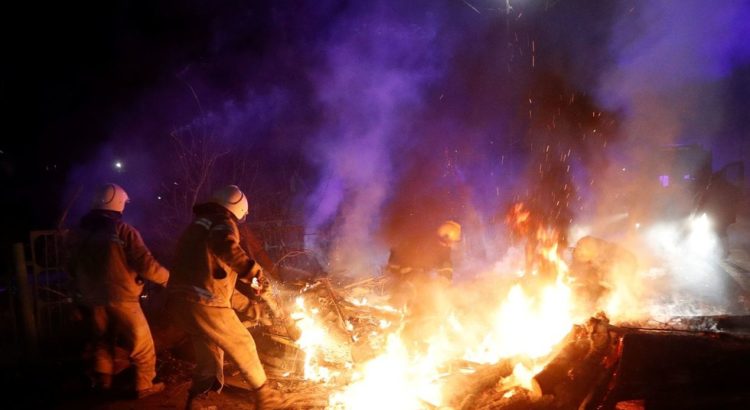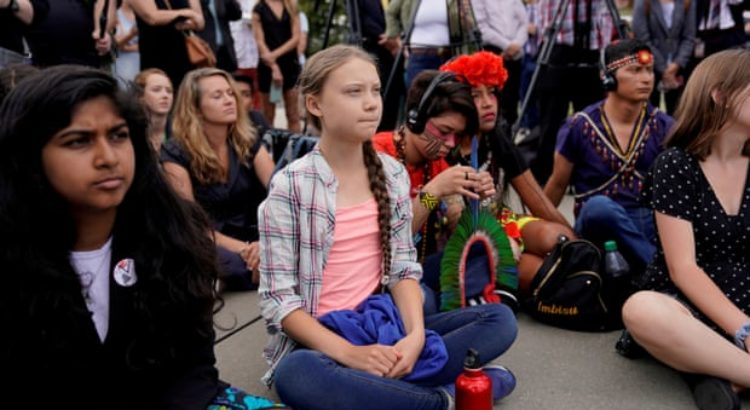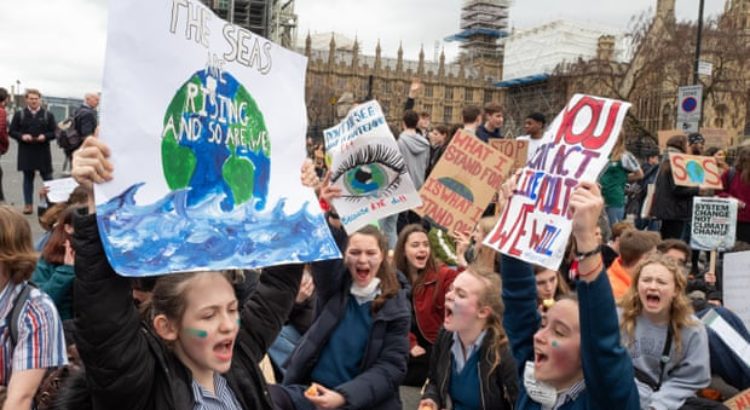By: Slavoj Zizek
Our media endlessly repeat the formula “No panic!” And then we get all the reports which cannot but trigger panic. The situation resembles the one I remember from my youth in a communist country: when government officials assured the public that there is no reason to panic, we all took these assurances as clear signs that they were themselves in panic.
It’s too serious to lose time with panic
Panic has a logic of its own. The fact that, in the UK, due to the coronavirus panic even toilet paper rolls have disappeared from the stores reminds me of a weird incident with toilet paper from my youth in socialist Yugoslavia. All of a sudden, a rumor started to circulate that there was not enough toilet paper in the stores. The authorities promptly issued assurances that there was enough toilet paper for the normal consumption, and, surprisingly, this was not only true but people mostly even believed it was true.
However, an average consumer reasoned in the following way: I know there is enough toilet paper and the rumor is false, but what if some people take this rumor seriously and, in a panic, will start to buy excessive reserves of toilet paper, causing this way an actual lack of toilet paper? So I better go and buy reserves of it myself.
The strange counterpart of this kind of ongoing excessive panic is the total lack of panic where it would have been fully justified. In the last couple of years, after the SARS and ebola epidemics, we were told again and again that a new much stronger epidemic is just a matter of time, that the question is not IF but WHEN it will occur. Although we were rationally convinced of the truth of these dire predictions, we somehow didn’t take them seriously and were reluctant to act and engage in serious preparations – the only place we dealt with them were in apocalyptic movies like Contagion.It is even not necessary to believe that some others take the rumor seriously – it is enough to presuppose that some others believe that there are people who take the rumor seriously – the effect is the same, namely the real lack of toilet paper in the stores. Is something similar not going on in the UK (and also in California) today?
What this contrast tells us is that panic is not a proper way to confront a real threat. When we react in panic we do not take the threat too seriously. On the contrary, we trivialize it. Just think at how ridiculous the excessive buying of toilet paper rolls is: as if having enough toilet paper would matter in the midst of a deadly epidemic. So what would be an appropriate reaction to the coronavirus epidemic? What should we learn and what should we do to confront it seriously?
What I mean by communism
When I suggested that the coronavirus epidemic may give a new boost of life to communism, my claim was, as expected, ridiculed. Although it looks that the strong approach to the crisis by the Chinese state worked – at least it worked much better than what goes on now in Italy, the old authoritarian logic of communists in power also clearly demonstrated its limitations. One of them was that the fear of bringing bad news to those in power (and to the public) outweighs actual results – this was apparently the reason why those who first shared information on a new virus were reportedly arrested, and there are reports that a similar thing is going on now.
“The pressure to get China back to work after the coronavirus shutdown is resurrecting an old temptation: doctoring data so it shows senior officials what they want to see,” reports Bloomberg. “This phenomenon is playing out in Zhejiang province, an industrial hub on the east coast, in the form of electricity usage. At least three cities there have given local factories targets to hit for power consumption because they’re using the data to show a resurgence in production, according to people familiar with the matter. That’s prompted some businesses to run machinery even as their plants remain empty, the people said.”
WHO chief Dr. Tedros Adhanom Ghebreyesus said last week that although public health authorities across the globe have the ability to successfully combat the spread of the virus, the organization is concerned that in some countries the level of political commitment does not match the threat level. “This is not a drill. This is not the time to give up. This is not a time for excuses. This is a time for pulling out all the stops. Countries have been planning for scenarios like this for decades. Now is the time to act on those plans,” Tedros said. “This epidemic can be pushed back, but only with a collective, coordinated and comprehensive approach that engages the entire machinery of government.”We can also guess what will follow when those in power note this cheating: local managers will be accused of sabotage and severely punished, thus reproducing the vicious cycle of distrust… A Chinese Julian Assange would be needed here to expose to the public this concealed side of how China is coping with the epidemic. So if this is not the communism I have in mind, what do I mean by communism? To get it, it suffices to read the public declarations of WHO – here is a recent one:
One might add that such a comprehensive approach should reach well beyond the machinery of single governments: it should encompass local mobilization of people outside state control as well as strong and efficient international coordination and collaboration.
If thousands will be hospitalized for respiratory problems, a vastly increased number of respiratory machines will be needed, and to get them, the state should directly intervene in the same way as it intervenes in conditions of war when thousands of guns are needed, and it should rely on the cooperation of other states. As in a military campaign, information should be shared and plans fully coordinated – THIS is all I mean by ‘communism’ needed today, or, as Will Hutton put it: “Now, one form of unregulated, free-market globalization with its propensity for crises and pandemics is certainly dying. But another form that recognizes interdependence and the primacy of evidence-based collective action is being born.”
Global coordination & collaboration necessary
What now still predominates is the stance of “every country for itself”: “There are national bans on exports of key products such as medical supplies, with countries falling back on their own analysis of the crisis amid localised shortages and haphazard, primitive approaches to containment,” Will Hutton wrote in the Guardian.
The coronavirus epidemic does not signal just the limit of market globalization, it also signals the even more fatal limit of nationalist populism which insists on full state sovereignty: it’s over with ‘America (or whoever) first!’ since America can be saved only through global coordination and collaboration.
I am not a utopian here, I don’t appeal to an idealized solidarity between people – on the contrary, the present crisis demonstrates clearly how global solidarity and cooperation is in the interest of survival of all and each of us, how it is the only rational egotist thing to do. And it’s not just coronavirus: China itself suffered a gigantic swine flu months ago, and it is now threatened by the prospect of a locust invasion. Plus, as Owen Jones noted, climate crisis kills much more people around the world than coronavirus, but there is no panic about this.
From a cynical vitalist standpoint, one would be tempted to see coronavirus as a beneficial infection which allows humanity to get rid of the old, weak and ill, like pulling out the half-rotten weed, and thus contributes to global health.
The broad communist approach I am advocating is the only way for us to really leave behind such a primitive vitalist standpoint. Signs of curtailing unconditional solidarity are already discernible in the ongoing debates, as in the following note about the role of the “three wise men” if the epidemics takes a more catastrophic turn in the UK: “NHS patients could be denied life saving care during a severe coronavirus outbreak in Britain if intensive care units are struggling to cope, senior doctors have warned. Under a so-called ‘three wise men’ protocol, three senior consultants in each hospital would be forced to make decisions on rationing care such as ventilators and beds, in the event hospitals were overwhelmed with patients.”
What criteria will the “three wise men” rely on? Sacrifice the weakest and eldest? And will this situation not just open up space for immense corruption? Do such procedures not indicate that we are getting ready to enact the most brutal logic of the survival of the fittest? So, again, the ultimate choice is: this or some kind of reinvented communism.
Source and Image: https://www.rt.com/op-ed/482780-coronavirus-communism-jungle-law-choice/









 Users Today : 199
Users Today : 199 Total Users : 35402499
Total Users : 35402499 Views Today : 253
Views Today : 253 Total views : 3331560
Total views : 3331560